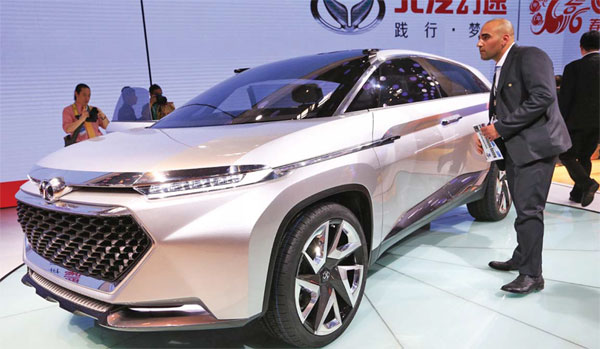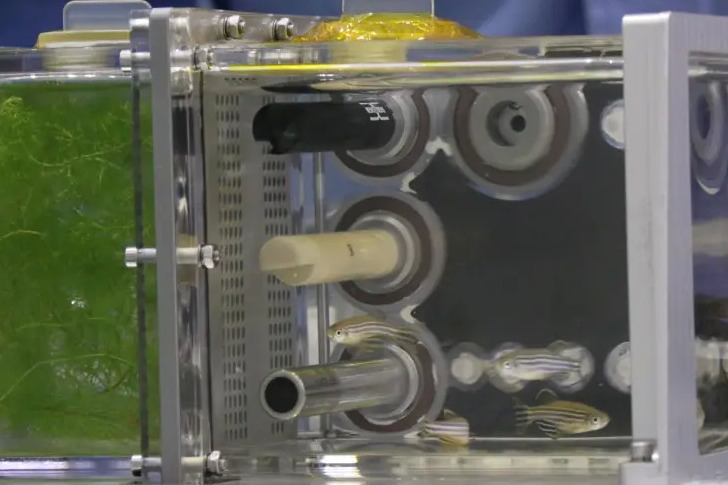BAIC invests in South African plant

The company will spend $773 million on the Port Elizabeth factory, making it the largest single Chinese investment in Africa
Beijing Automotive Industry Holding Co, one of China's largest automakers in terms of sales, plans to produce up to 100,000 vehicles at its new manufacturing facility in South Africa in 2018, the company's chairman said on May 3.
The Port Elizabeth plant is scheduled to break ground next month and begin production in November 2017.
| A visitor to the recent Beijing auto show examines a new-energy vehicle made by Beijing Automotive Industry Holding Co. Xinhua Photo |
BAIC plans to invest 5 billion yuan ($773 million) in the plant, which would be the single largest Chinese investment in Africa. It would be operated as a joint venture with Industrial Development Corp, a South African financial company.
Xu Heyi, the group's chairman, says continued investment in infrastructure development will be key for the company's sustained growth in Africa over the next decade as consumers there are keen to buy easily serviceable and inexpensive vehicles.
Buoyed by the surging demand for new vehicles in Africa, BAIC established a minibus assembly plant that employs more than 500 people in Springs, also in South Africa, in 2013.
"We will continue to invest in our South African factories and an assembly plant in Nairobi, Kenya, to make pickups and light trucks," Xu says.
"Having factories in Africa will help the company move closer to the market and avoid it paying duties of up to 25 percent."
BAIC's new manufacturing base will produce passenger vehicles, sport utility vehicles, minivans and vans. It will create 2,500 jobs directly, and more than 10,500 jobs indirectly. At its full capacity, the plant will generate an industrial added value of 12.4 billion yuan for vehicles and 6.2 billion yuan for parts.
"More than 50 percent of the plant's products will be exported to contribute a trade volume of about 6.2 billion yuan to South Africa," Xu says.
Zhao Ying, a researcher at the Institute of Industrial Economics of the Chinese Academy of Social Sciences in Beijing, says in most African countries, where new vehicles are beyond the reach of most people, secondhand vehicles command a large share of the market. The proportion is about 70 percent in most sub-Saharan countries such as South Africa, Ghana, Ethiopia, Angola and Kenya, Zhao says.
"The disadvantage of such a big secondhand market is that the brand life of some cars can be as long as 20 years, and anyone with one of the old models can face problems in obtaining spare parts."
For instance, Japanese carmakers including Toyota Motor Corp and Nissan Motor Co, the main source for secondhand vehicles in Africa, have stopped producing spare parts for some models from the 1990s.
(China Daily Africa Weekly 05/06/2016 page25)
Today's Top News
- Inbound visits surge as nation extends visa-free policies
- 'TikTok refugees' migrate to Xiaohongshu amid ban fears
- Ambassador invites more US youths to visit China
- Xi calls China-EU partnership one of mutual achievement
- Spring Festival rush: Travelers embrace new routes and conveniences
- Biden's eulogy to his alliance-building efforts reveals how out of touch he was with reality: China Daily editorial































